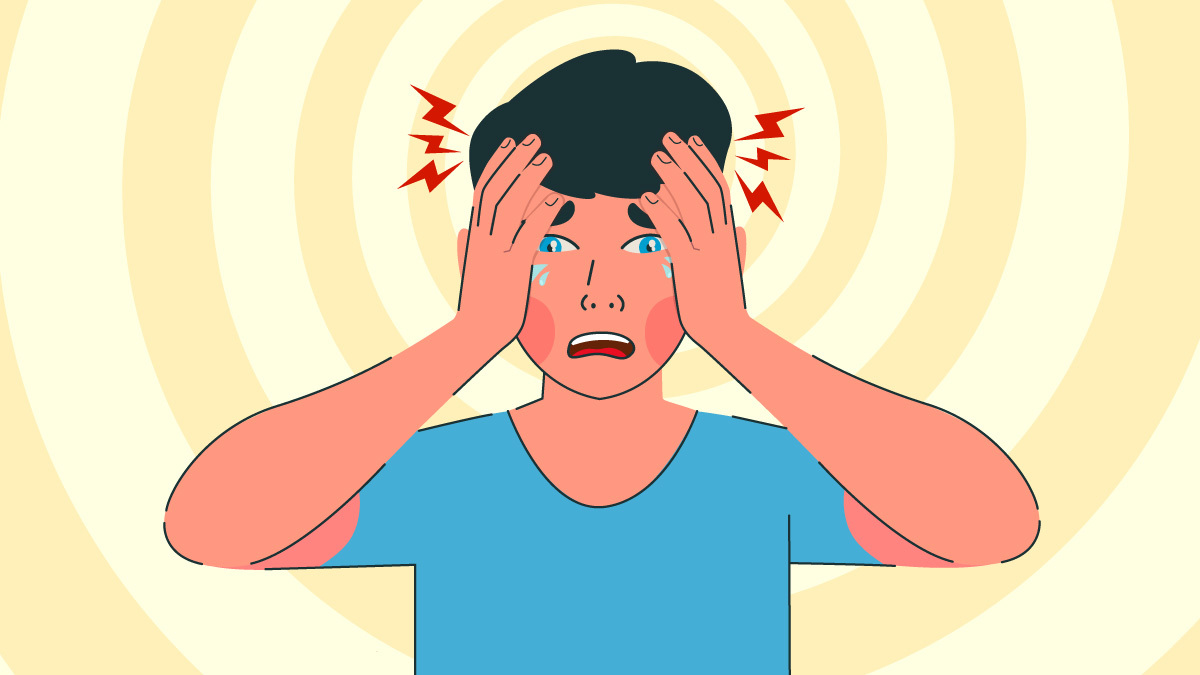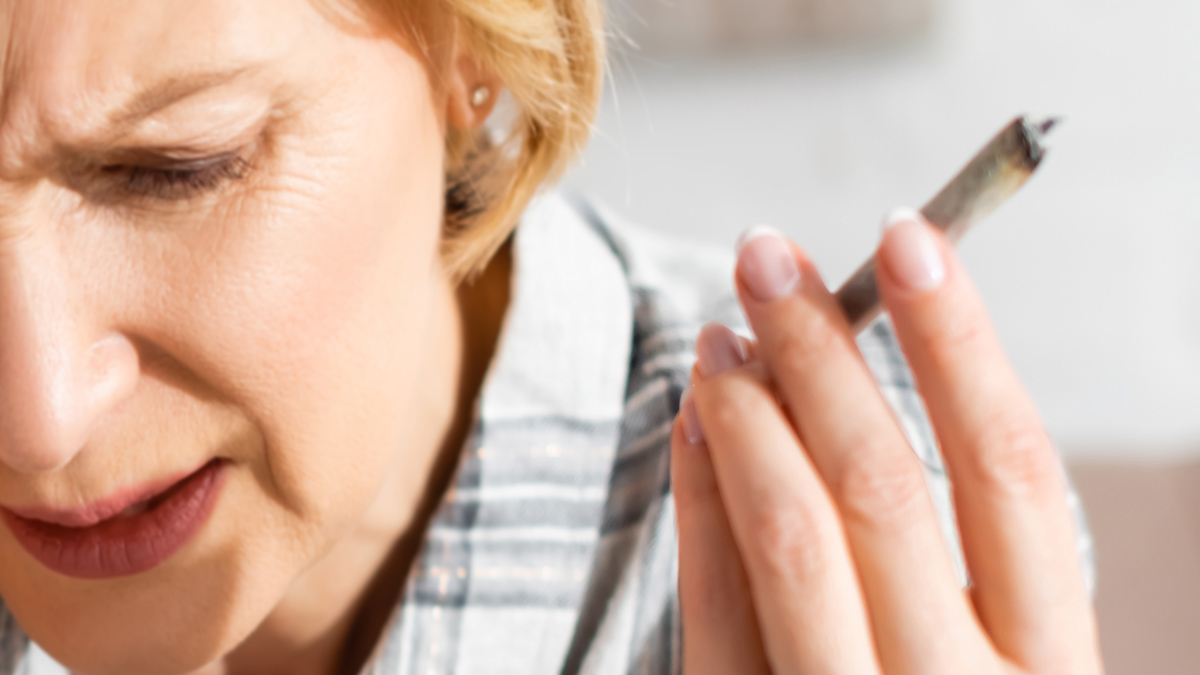Can You Smoke Weed With A Concussion?

Your friends are just looking out for your health.
“You want to smoke up? Man, you just had a concussion that rattled your brain. Are you nuts?”
Their concern is well-meaning and admirable – but it may also be misplaced. There’s no definitive proof, but there is a growing body of evidence showing that cannabis may actually help with both the symptoms of concussions and the brain’s healing process.
Even those well-aware of the medicinal benefits of marijuana may find that one a little difficult to accept. To make you high, the THC in weed interacts with receptors in your brain, and your brain’s just been scrambled. How is smoking a smart thing to do?
We’re not here to provide medical advice; always check with your doctor before taking or smoking anything when recovering from a concussion or other serious illness or injury.
But we are here to provide you with the research on cannabis consumption and concussions. And that research is certainly interesting.
What Is A Concussion?
Most people have a general idea of what a concussion is since there’s been so much written about traumatic brain injuries in sports over the last twenty years. They may not fully understand what’s involved, though.
A concussion generally occurs after some type of blow to the head, although it can also follow a rapid and violent shaking of the head. Concussions most commonly result from violent sports contact, car accidents, or sudden falls.
In a concussion, the force of contact causes the brain to bounce around or hit the skull, leading to temporary symptoms like headaches, dizziness, loss of balance, light sensitivity, vision issues, and cognitive difficulty. In rare but serious cases, loss of feeling in the body, amnesia, or seizures may also occur.
A concussion is classified as a m“ild” traumatic brain injury (TBI) because it’s not life-threatening. However, it can cause long-lasting effects because of chemical changes in the brain that occur as the result of the trauma. Brain cells may also be stretched and damaged by serious concussions.
How Do Concussions Damage The Brain?
One of the most important changes that occur in the brain after a concussion involves the release of the neurotransmitter glutamate. There’s plenty of glutamate in the brain, and it does important work by carrying messages between cells. But glutamate can do serious damage if it reaches the tissue between brain cells.
A concussion breaks the cell barriers that keep the neurotransmitter where it belongs. And when glutamate floods other areas of the brain, it kills crucial neurons. That’s what can cause major brain damage. What’s most important for our discussion, though, is how glutamate kills neurons in the brain.
Here’s the simple version, without digging too far into neurobiology. Glutamate excites brain cells, which then open their pores to allow sodium to rush in. Sodium causes the swelling typically associated with TBIs, and opens the pores even further to allow calcium to pour into the cells. The calcium is what ends up killing them.
So what? If you’ve stayed with us, you now know that excess swelling in the brain is what allows brain cells to die after a concussion. Swelling enables calcium to kill the cells. But…if you can quickly reverse the swelling, you may keep concussion damage to a minimum.
That, finally, brings us to weed.
Cannabis and Its Medicinal Properties
Modern medicine has been unable to find an effective pharmacological treatment for the aftereffects of concussions. It appears, however, that marijuana may help.
Cannabis has been shown in numerous studies to have neuroprotective effects, and it’s used by many physicians to help treat neurodegenerative diseases like Parkinson’s disease. The reasons for weed’s effectiveness are still being studied, but it has been shown that marijuana has anti-inflammatory effects – which bring us back to concussions.
You’ll remember that controlling the swelling after a TBI is one of the keys to minimizing brain cell damage. Swelling, of course, is one of the primary responses to inflammation. And cannabis has been used for years to effectively treat arthritis, inflammatory bowel disease (IBD), fibromyalgia, and many other inflammatory diseases and illness.
Researchers believe that CBD is the cannabinoid that provides the bulk of marijuana’s anti-inflammatory properties. But they’ve also found that the so-called “entourage effect,” with all of the weed’s cannabinoids – including THC – working together with its terpenes and flavonoids, improves the body’s response even more.
One study was particularly encouraging. Work at the Harbor-UCLA Medical Center that was published in 2014 found that TBI patients who had positive drug tests for THC wound up having better post-concussion outcomes compared to those who tested clean.
Does this mean that you should smoke weed with a concussion?
Research is still being done on the subject, and the evidence doesn’t allow medical experts to reach that conclusion yet.
However, we’re not quite done looking at the reasons you might consider smoking up after a concussion.
Cannabis and Concussion Symptoms

Some of the most common complaints of medical marijuana patients are chronic pain, headaches, insomnia, and irritability. Smoking up helps to relieve those issues.
Chronic pain, headaches, insomnia, and irritability are also among the most common symptoms and aftereffects of concussions. So it would make common sense that using weed to treat those problems would be just as effective as it is for medical patients – and several studies have been done on the subject.
The biggest one was conducted by the Dent Neurological Institute in Buffalo. Researchers administered weed (with tinctures or vaporizers) to nearly 150 post-concussion patients complaining of the symptoms we’ve mentioned, and four out of every five patients reported improvements after they’d been treated with medical marijuana. 20% said the improvement was significant. Pain, mood, and sleep were the concussion symptoms that responded best.
There’s one more possible issue to mention. Seizures are sometimes observed after a significant TBI, and THC is believed to be able to control or prevent seizures. In fact, several prescriptions containing cannabinoids have been approved by the FDA to treat some forms of epilepsy.
So, Can You Really Smoke Weed With A Concussion?
Of course, you can smoke it. Should you? We’ll repeat the caution we gave earlier: only your doctor can give you the green light to consume cannabis if you’ve had a concussion.
However, there are no serious indications that smoking weed will do any harm if you’ve had a minor TBI, and early research seems to imply that it can help with both the brain cell damage and symptoms caused by concussions. Some experts caution that THC use can slightly increase the risk of stroke, but there are no published reports of that had happened.
The best suggestion we can make – other than speaking with your doctor or a health professional – is to choose a strain that’s high in CBD. That’s the cannabinoid most likely to provide the health benefits that weed might provide for those who’ve had a concussion.
Can You Smoke Weed With A Concussion? FAQ
Q: Would edibles be better than smoking, if you have a concussion?
A: There’s really no evidence either way. The only research we’ve found claimed that cigarette smoking appeared to contribute to worsened symptoms in those with more serious brain injuries, so it’s possible that edibles might be a slightly better choice.
Q: What about THC or CBD pills?
A: Again, there’s no helpful evidence on either one. There may be some on the horizon, though; researchers at the University of Miami have received a $16 million grant to work on a “cannabis concussion pill” that could be used after a TBI.
Q: Are there any guidelines regarding the use of THC vs. CBD after a concussion?
A: The Dent Institute study we mentioned effectively used a vape pen that contained a ratio of 20:1 THC to CBD. The Concussion Alliance suggests a ratio of 1:5 when vaping (or smoking) for headache symptoms, and tinctures with a ratio of 1:1.